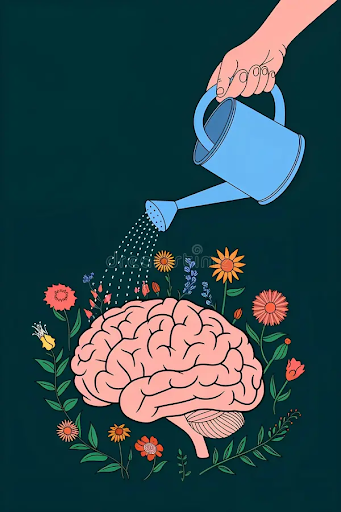Intro
In today’s fast-paced world, the concept of self-care has gained significant traction as a crucial component to overall well-being. Self-care involves proactive steps to promote health, prevent diseases, and manage one’s physical and mental state, with or without professional support. As global access to essential health services remains a challenge for billions, understanding and implementing effective self-care strategies have become more important than ever. This essay explores the multifaceted nature of self-care, drawing insights from the World Health Organization (WHO), the National Institute of Mental Health (NIMH), and an interview with a local mental health professional to highlight the importance in managing stress, enhancing mental health, and fostering a balanced lifestyle.
Defining Self-Care
According to the World Health Organization, self-care is: “The ability of individuals, families, and communities to promote health, prevent disease, maintain health, and cope with illness and disabilities with or without the support of a health worker.” This definition emphasizes the broad scope of self-care, extending beyond individual actions to include community and family involvement. The NIMH adds that self-care includes, “Taking the time to do things that help you live well and improve both your physical health and mental health.” This encompasses a wide array of activities including (but not limited to): sports/physical exercise, social interaction, reading/writing, playing an instrument, or baking/cooking. These activities are tailored to individual needs and preferences, which propagates the personal and adaptable nature of self-care.
The Importance of Stress Management
Stress Management is a critical aspect of self-care, particularly in demanding environments like the workplace. According to a mental health professional of Central Wisconsin, stress management can be defined as,“The ability to be aware of potential stressors and take the needed measures to alleviate them before they become overwhelming.” By identifying and addressing stressors early, individuals can maintain a healthier and more balanced approach to their professional life. Effective stress management not only prevents burnout but also enhances productivity and overall job satisfaction.
Strategies for a Healthy Work-Life Balance
Maintaining a healthy work life balance is essential for preventing burnout and excessive stress. Strategies recommended by mental health professionals include Spending time outdoors, adopting a healthy Sleep Schedule and exercise routine, keeping stressful extracurriculars to a minimum. The NIMH suggests exploring relaxation programs that incorporate meditation, muscle relaxation, or breathing exercises. These activities influence the nervous system and brain activity, leading to stress reduction, improved focus, and emotional regulation. Meditation helps individuals focus on the present moment, reducing ruminations on the past and worries surrounding the future.
Controlled Breathing helps to lower heart rate, blood pressure, and stress hormones.
Oxygenation is a result of controlled breathing in which oxygen levels in the blood increase, which helps improve cognitive function and energy levels. Scheduling regular times to enjoy healthy activities
Cultural Perspective on Self-Care
Cultural attitudes towards self-care have evolved over time. Historically, our culture does not support sustainable forms of self-care, examples of this include social media influence, the emphasis on productivity, and a lack of work-life balance. Some pieces of evidence that support this claim include:
–66% of American workers have to skip one meal a day due to working hours.
-U.S. ranks 29th out of 41 for countries with the best work/life balance, this is due to our long hours and lack of parental leave policies.
-Only 43% of surveyed workers reported that their employer offers health insurance with coverage for mental health and substance use disorders.
-Breaks are not always encouraged, with only 35% of workers reporting that their employer offers a culture where breaks are encouraged.
However, recent adjustments including increased media attention, education programs, clinical research, organizations like NAMI, Mental Health America, and the 988 Lifeline are all raising awareness and advocating for policy changes. These implementations have created a foundation for mental health education and awareness. This shift reflects a growing recognition of the importance of mental and emotional well-being, Paving the way for greater acceptance and integration of self-care practices into daily life.
The Role of Mental Health Professionals
Mental health professionals play a vital role in supporting individuals in their self-care journey. They provide the capacity and knowledge basis to help individuals become the best version of themselves, as well as supply security and support for those in need. In case management and treatment planning, professionals utilize resources such as the DSM-5 (used to help diagnose and classify mental disorders), or The Psychotherapy Treatment Planning Manual helps therapists create individualized treatment plans and diagnostic processes. Mental Health Professionals’ expertise ensures that individuals receive the appropriate guidance and support to effectively manage their mental health.
Conclusion
In summary, Self care is a multifaceted and adaptable practice crucial for promoting overall well-being. It encompasses stress management, work-life balance, and cultural awareness, supported by the guidance of mental health professionals. As we continue to navigate the complexities of modern life, how can we look for new ways to help and ensure that self-care becomes a universally acceptable and deeply ingrained aspect of our daily routines?





































































